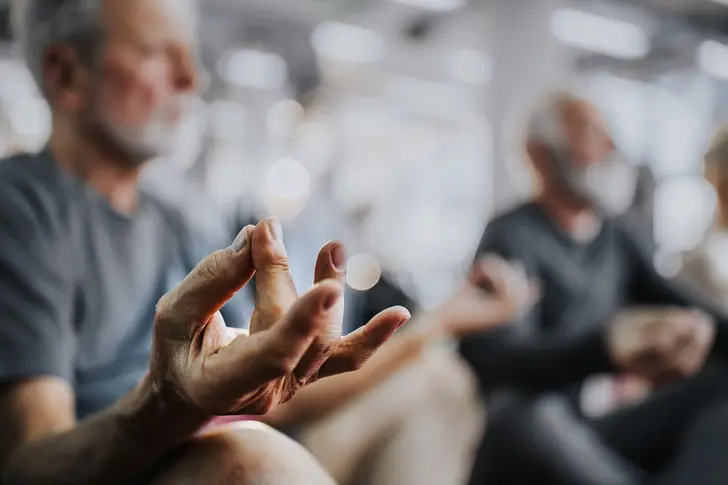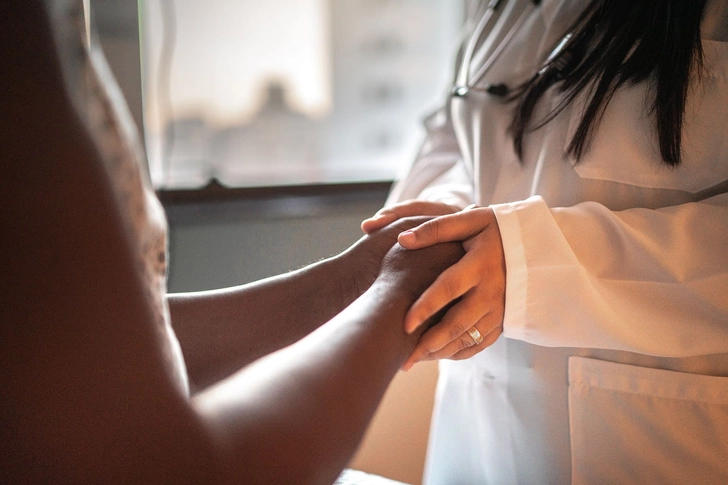- Overview
- Causes, Risks & Prevention
- Signs & Symptoms
- Tests & Diagnosis
- Your Lung Cancer Care Team
- Treatment
- Living With
- Remission & Recurrence
- Support & Resources
- Appointment Prep
- View Full Guide
Living Your Best Life With NSCLC


Try Mind-Body Techniques
“Using mind-body techniques as part of a multidisciplinary approach to lung cancer may improve your quality of life. Mind-body practices can help address sleep disturbances, anxiety, and mood issues. Try mindfulness-based stress reduction or yoga. Both techniques use components of movement, breath control, and meditation to help you feel and live better.”
-- Monisha Bhanote, MD, integrative medicine doctor, Jacksonville Beach, FL

Get Support to Quit Smoking
“If you smoke, tobacco treatment is a critical step in your treatment plan, no matter your stage of diagnosis or how long you’ve been smoking. Supportive counseling and encouragement from your oncologist and family is a tremendous advantage. By taking advantage of all opportunities to support you and your family, the path through treatment will be easier.”
-- Roy S. Herbst, MD, professor, Yale School of Medicine; NSCLC treatment and research specialist

Be Informed
“Consider second opinions when deciding on your treatment plan. Look for one from an academic or community center of excellence that specializes in lung cancer and offers multidisciplinary care. Talk to your doctor about supportive care, rehab, or survivorship programs. Reach out to lung cancer organizations to stay up to date about advances in NSCLC.”
-- Danielle Hicks, chief patient officer, GO2 Foundation for Lung Cancer

Have Your Questions Ready
“I can’t emphasize how important it is to ask questions of your medical team. Medical and technical jargon can be overwhelming. Always bring someone else with you to your doctor visits to be a second set of ears. When you go home, there will always be more questions. Write them down for your next visit and bring the list, because things go fast on visits.”
-- Gerold Bepler, MD, CEO, Karmanos Cancer Institute, Detroit

Join An In-Person or Online Support Group
“In cancer support groups, people with similar experiences share knowledge and coping strategies. You can talk about your concerns and feelings and get help with practical issues. You can learn about others’ experiences with different treatments so you know what to expect and how to prepare for side effects. You may also bring family members. Ask your cancer practice providers or go online to find out more.”
-- Jussuf Kaifi, MD, thoracic surgeon, University of Missouri Health Care

Take Care and Keep Living Your Life
“The road to treatment for any type of cancer is a long one. Depression and withdrawal are common side effects. Being able to keep your mind off your cancer is important. I always encourage patients to continue to do what they usually do. Continue your job responsibilities. Maintain a healthy lifestyle. Exercise often: Aim for 20-30 minutes per day.”
-- Mark Dylewski, MD, chief of thoracic surgery, Miami Cancer Institute
IMAGES PROVIDED BY:
1) Getty
2) Getty
3) Getty
4) Getty
5) Getty
6) Getty
SOURCES:
Monisha Bhanote, MD, integrative medicine doctor, Jacksonville Beach, FL.
Roy S. Herbst, MD, professor, Yale School of Medicine; NSCLC treatment and research specialist, New Haven, CT.
Danielle Hicks, chief patient officer, GO2 Foundation for Lung Cancer, Washington, D.C.
Gerold Bepler, MD, CEO, Karmanos Cancer Institute, Detroit.
Jussuf Kaifi, MD, thoracic surgeon, University of Missouri Health Care, Columbia, MO.
Mark Dylewski, MD, chief of thoracic surgery, Miami Cancer Institute, Miami.